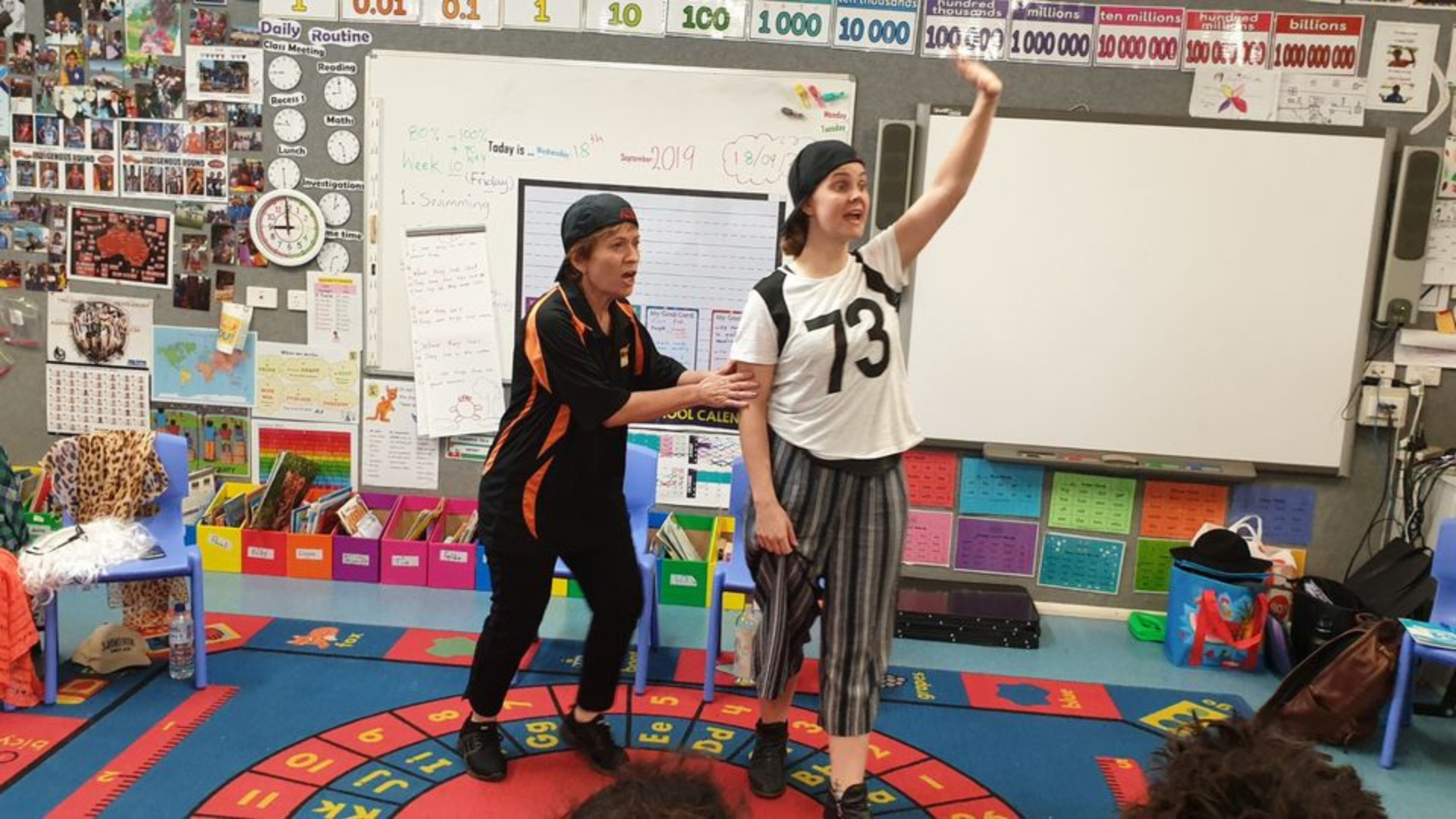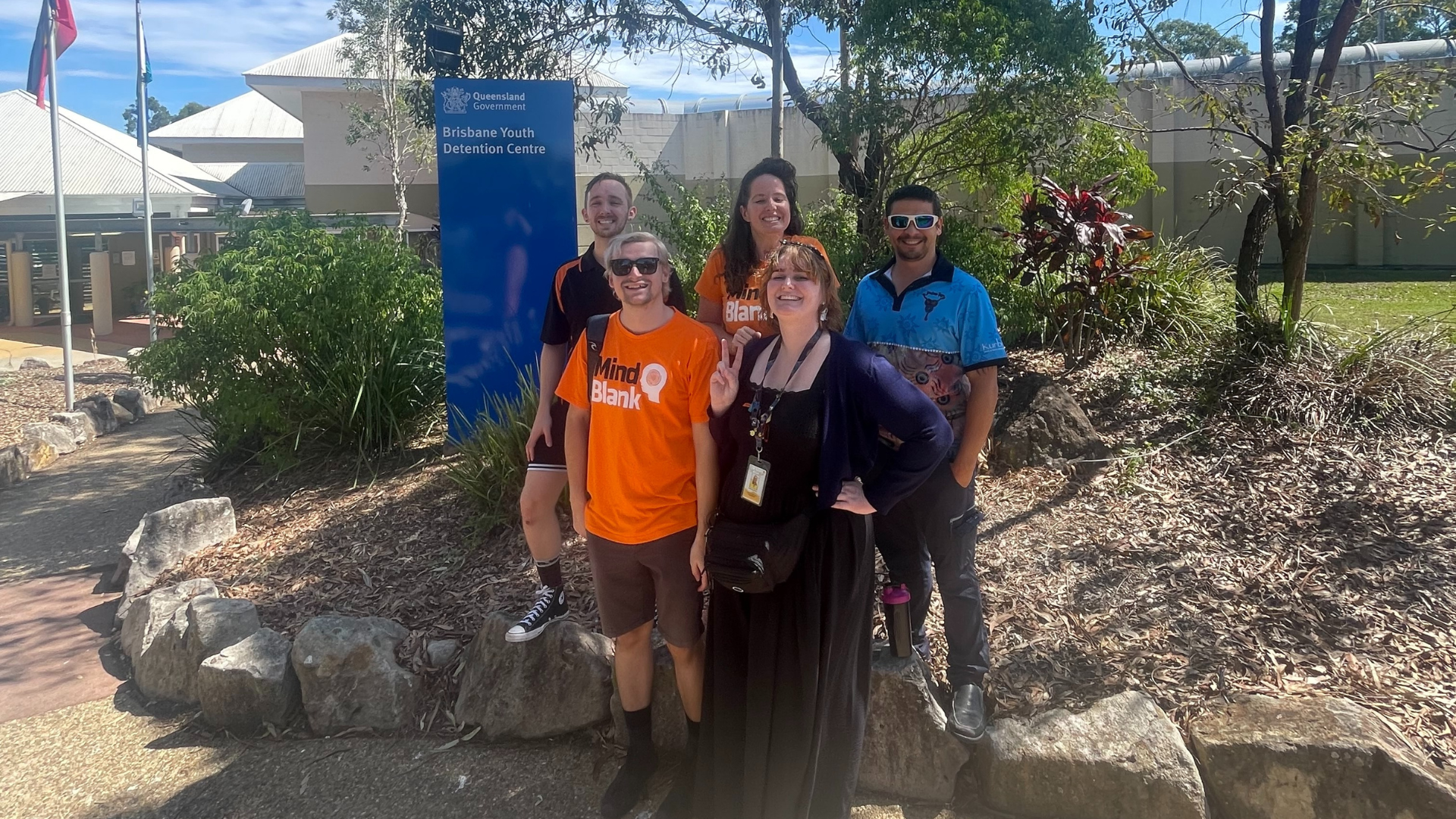Ally Kelly On Creative Approaches To Mental Health Crisis Prevention In Communities
Ally Kelly is the CEO & Founder of Mind Blank Ltd. For years she has been a grass roots social advocate and a firm believer in early intervention.
She is a passionate and nationally recognised professional in the suicide prevention sector. Ally believes that primary prevention offers the greatest hope for intervention recovery and therefore takes every opportunity to educate the community to recognise the early signs of mental illness, without stigmatising or discriminating. Her work with Mind Blank sees the merging of arts and health come together in impactful and creative ways.
Ally discusses What creative mental health promotion education is and How lived experience has informed her transformational work in at risk communities across Australia.
Highlights from the interview (listen to the podcast for full details)
[Sarah Ripper] - To start off, could you please just share a little bit about your background and what led you to your work today?
[Ally Kelly] - My background is in psychology and the performing arts, but let's just take a step back to share my why. What is my driver? Why on earth would I dedicate the last 12 years of my life towards early intervention and prevention strategies before the world was ready for it? Long story short, I have a lived experience of mental illness within my household; my first memory was at age six. Growing up being a carer of a parent who had mental health issues, I did see the cycle of oppression which can occur. I am a survivor of post-traumatic stress disorder, so I've gone through the system which taught me what gaps we have. On the pathway to seek help and get support, there are so many opportunities for improvement, and that creates the fire in my belly to want to do more.
There's so much we can do to educate the public and community to know what to do in times of need. We can equip people to understand how to help others, but also build community resilience.
Our medical model is an 'illness' model; it's quite often focusing on the crisis end of things. What we're not taught is how to hold space for individuals. When it comes to the suicide prevention sector, too often I hear stories where people may not know what to do in a time of need, who then must race to emergency services. If we're waiting until a crisis moment to get help, it's not ideal. Our services are inundated, anyone who has tried to reach the mental health sector may have experienced these waiting lists. These waiting lists can be anything from six weeks to six months to help the intervention pathway. There are a lot of tactics and techniques we can do prior to those moments to help mitigate high risks; to have more maintainable standards so we can help equip our loved ones during these times.
What led you to creating Mind Blank and working in the mental health space?
Initially, the concept of Mind Blank came from first finding out what Forum Theatre is. For anyone that's a theatre nut, you may have been exposed to this concept. But for those who aren’t, Forum Theatre is a tactic and technique of theatre to provoke change. The moment I discovered it, this light bulb switched on. Mental health literacy and health promotion is often facts and figures based, but using an interactive theatre model, you can bring those lessons to life. I do believe there is an opportunity to upskill and engage the next generation of young Australians, and storytelling is a fantastic medium to do it.
Our ancestors who all walked before us all have some very primal storytelling strategies. Of course, it's a no-brainer this technique could engage communities. It provides a safe environment where we can go back through a storyline and see different choices characters can make. It helps educate and model what help seeking behaviours are and how we can intervene from an early intervention perspective. What we don't realise in the eye of the storm, when we are going through hardship and everything's overwhelming, is how many support connections and networks there are out there. If people wait until that moment of crisis, they feel quite isolated and let down by the sector or their peers. I am personally a huge advocate of what the arts can do to help educate the community, model positive behavioural choices and help seeking strategies while building resilience. If we can get these skills in early, we don't have to burn out. We don't have to wait on long waiting lists.
Where are some of the places Mind Blank is creating change and what impacts have you had so far?
I'm a huge advocate for supporting those who need it most. When you look at the statistics, youth mental health and suicide is the number one leading cause of death for young people. Then you've got statistics based on regional or country communities where young people are up to a 60% higher risk. Then, in First Nation communities here in Australia, statistics show up to an eight times higher risk of suicide than in non-Indigenous communities. We have worked in various parts of Australia, urban, regional, and remote. My fondest memories come from the Northern Territory. We worked with our community partner, TeamHEALTH, which is a local mental health district servicing Darwin, Palmerston, and First Nations communities around Kakadu National Park, as well as the Big Rivers communities. Big Rivers is in the heart of Australia and the Northern Territory. As for the impact we are having, we do know through the research we've conducted that we've got an engaging model to help educate young people.
What we do see is a reduction of stigma post programs and young people are taking the initiative to seek help straight after. We're not just raising awareness; we also include a skill building component in our work.
I can talk about so many testimonies of young people coming back and sharing the experiences and life-changing moments for them. I'll just share one example we had seen in the Northern Territory, because it really did impact me. There was a young person who stayed back post program to have a chat with the facilitators. She was a high-risk young person. Yes, she was from a First Nations background, but she was also already tapped into the foster care system. She was a young person sitting on waiting lists, and what had happened is she needed help right then and there. But instead, she was sitting on a waiting list, looking for help and support she just wasn't getting. The fact she reached out to our community facilitators and partners within the local health district meant we could short track her into other program support services, which she needed quite desperately. What had happened is a help seeking barrier, where she did not feel comfortable reaching out to the local school counsellor who she didn't find relatable.
One of the messages we tell teenagers when they’re seeking help is that the first person you go to may not be that helpful, but you've got to keep at it. You've got to keep trying, and there are so many different responsible adults you can reach out to. In this circumstance, we were able to tap her into a different systems pathway, which got her the help she needed.
As a recipient of the Suicide Prevention Life Award and Mental Health Matters Award for your outstanding contribution in the sector, what have been a few key learnings in growing Mind Blank to achieve what you have today?
One of the biggest challenges comes from pioneering a new direction. Where do we belong? We have struggled to get funding from the arts, because they say this is not arts, it's education. Education is a completely different pathway, and education bodies say we are not education, but we are health. However, health often measures clinical outcomes.
When pioneering a new direction, you 100% must back yourself and be willing to share languages from the funding bodies and stakeholders to be a middle ground. This is so you can talk the talk with various stakeholders and not exclude yourself from opportunities.
You've got to back yourself in this journey, and the lesson I want to share is you're only going to be stronger together. When pioneering, business owners or founders often feel they must do it all themselves. Absolutely you're going to have a heavy weight to bear; you're going to need to grittily army crawl through the first few years! But with others you can work smarter and achieve longer term outcomes.
Don't think you must know it all. There will be other people you can work with that can help rise above the qualities or strengths and weaknesses you may be needing at different times.
What are some inspiring projects or initiatives you've come across recently?
I want to talk about Future Generation Global. We are lucky to be receiving impact funding over the next three years from FGG. But the reason I'm excited about what FGG is doing is they're investing in prevention. When we just invest in this illness model, we keep waiting for people to get sick and fund the same resources. There's more need in community than there will ever be enough resources address it. FGG is an impact funder who have turned their focus and realised we should be investing in prevention organisations. I'm also excited because they're helping us measure prevention. There have been 14 different organisations which went through a rigorous investigation to be put forward for this funding. They're backing us for three years as an investment to see change, and they're helping us by providing a framework to how we can measure and evaluate our outcomes. The point of difference I see in them is they're looking to invest in prevention of youth mental health initiatives before the government is ready for it.
To finish off, what books or resources would you suggest to our listeners?
The two books that come to mind are The E-Myth and The Four-Hour Work Week. The E-Myth will talk you through how as a founder you must create a base for processes and frameworks for growth. This will save you so much time in the future, because too often community work or excited, passionate founders grow their business organically. But, if you're not creating that administration system along the way, you're going to create a lot more headaches as you continue to scale. The Four-Hour Work Week helps with thinking differently about how to be effective with your resourcing and time. I also want to mention that right now I'm not reading any books! I'm taking some time out, so I've been listening to Oprah's Super Soul Podcast. To me, that's what drives my energy and that fire in my belly. Go out there and hear passionate stories to inspire you, because that'll remind you why the work you're doing is so important to communities.
Initiatives, Resources and people mentioned on the podcast
Recommended books
The E-Myth Revisited: Why Most Small Businesses Don’t Work and What to Do About It by Michael E. Gerber
The Four-Hour Work Week: Escape the 9-5, Live Anywhere and Join the New Rich by Timothy Ferriss







